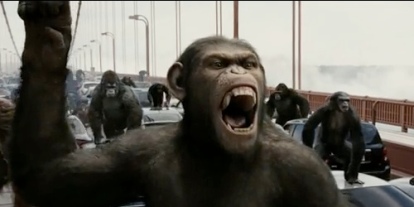Running Time: 105 minutes
MPAA Classification: R for violence, pervasive language, and drug content.
Cast: Edward Norton, Keri Russell, Tim Blake Nelson, Richard Dreyfuss, Susan Sarandon, Melanie Lynskey, Josh Pais
Director: Tim Blake Nelson
Producer: First Look Studios
Screenplay: Tim Blake Nelson
Edward Norton (Fight Club, The Incredible Hulk) stars in Tim Blake Nelson’s darkly funny Leaves of Grass as twin brothers Bill and Brady Kincaid. (Yes, he plays both.) The film opens with each brother giving a lecture on what he knows best. Bill is a professor at Brown University; Brady is a pot farmer in rural Oklahoma. Because of this cultural difference, Bill has chosen to remain distant from his family – that is, until he receives a phone call informing him that Brady has been killed in a crossbow accident. “They’re inexplicably popular where I come fom,” he says.
So, Bill is beckoned back to Oklahoma to attend his brother’s funeral, but upon his arrival, he learns that Brady is not dead. In fact, he’s very much alive and very much in debt to drug lord Pug Rothbaum (Richard Dreyfuss, Silver City). If he doesn’t pay up soon, there’s a good chance that he will be dead. All that he needs is Bill’s assistance…
Leaves of Grass doesn’t look like much on the outside, but don’t let that fool you. It’s actually quite good, thanks to Norton’s fabulous dual-performance and Tim Blake Nelson’s twisty screenplay. Norton gives each brother their own voice patterns and mannerisms, almost making it seem like they are two entirely different people. The fact that he plays both makes it all the more interesting. And Nelson’s screenplay is riddled with wonderfully poetic dialogue and clever plot twists. The jarring tonal shifts are likely to leave the audience displeased, but they are necessary.
Excluding Dreyfuss, Keri Russell, and Tim Blake Nelson himself, the supporting performances are subpar. Susan Sarandon is flat a majority of her screen time, Lucy DeVito is annoying, and Amelia Campbell is not believable for a second of her screen time, even though her role could be considered a cameo. Josh Pais has his moments, but he consistently overacts, and Melanie Lynskey’s accent is despairingly unrealistic. A lot of this could be contributed to Tim Blake Nelson’s faulty direction. As a writer, his scripts are solid, but his directing could use a bit of work.
Leaves of Grass is not a film for everyone. Many will find how Nelson shifts from comedy to graphic violence upsetting and off-putting as they should, but for those that can handle these tonal shifts, the film is an enjoyable and oddly entertaining experience. The scenes may not transition well from one to the other, but by themselves they are somewhat magical.
| Final rating: ★★★ (out of ★★★★) |
© 2011 Stephen Earnest


